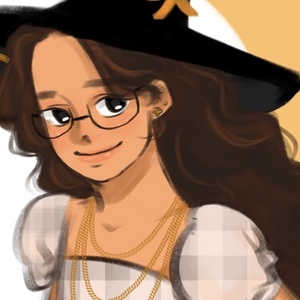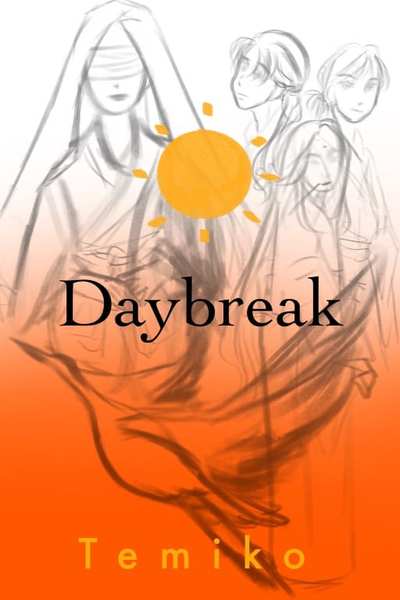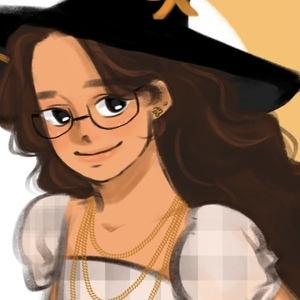By’lyl takes children who don’t behave.
That is what parents say to their children when they snuck much too-many sweets into their mouths or played too-many naughty tricks.
It’s what the adults say when children run too far and parents aren’t ready to let go.
But sometimes the monsters of this world do not instill fear within a child.
For the curious, it takes a story.
Every child hears it differently. However, stories are essentially all the same; there is the good, and then there is the bad.
A little girl sat next to her sister, legs tucked beneath her and arms folded respectfully. A priest sits with his legs crossed in front of them. A bowl of tea leaves, a kettle, and a bamboo ladle sat comfortably between the small group. Tea is made and the girls each take a ladle; pour the tea in a bowl. The priest takes the sister’s bowl and rests it on his lips. Smiles. Then he picks up the one belonging to the little girl, looking down at her as he takes a sip. A pause.
The room is bare lest for the two girls, the tea, and the priest, although the shrine maidens of the Temple of the Crane walked the perimeter and could hear all that goes in the room through the thin walls. The two children did not belong to the temple, but took to waiting there as they had no nanny at home while their mother attended parties. The father is at work as most fathers claim to be.
The priest puts down the bowl. He does not get up.
The little girl knows what this means. So does her sister and the shrine maidens of the temple working around the outer grounds. Some pause and sneak a peek through the wide-open paper doors.
Sisters of the Temple of the Crane did not hit or berate each other. They told each other stories in the guise of accusations. Or one story in particular, a story the little girl and her sister knew, but continued to listen to day in and day out.
Once upon a time…
All stories started this way. As if it would end in happiness. The people of the west made sure all their stories started with “Once upon a time” and ended with “Happily Ever After” through their collection of Contes de Blanc. The east was not so soft.
Because each tale was a lesson. Each tale was a life.
Once upon a time, there ruled a hungry forest over a small, forgotten village in a small, forgotten kingdom. The forest’s name was By’lyl, because it terrorized the village like an ill tempered tyrant and would eat the villagers livestock. When the village priest pleaded with By’lyl for mercy and kindness on them, the forest stopped its misdeeds only to begin eating the villagers. The priest pleaded once more so that the forest would spare the poor village. However, the forest was no good and only had trickery and evil in its heart. By’lyl was born from sin, and so it was sin itself. So then the evil forest prompted a deal: The forest will no longer take the villagers or their livestock on its own regard. However, the villagers must sacrifice one of the following to By’lyl each season; a man in the summer, a cow in autumn, a woman in the winter and a child in the spring.
So the promise was made, and the forest smirked at its own cleverness while the priest slinked back home with the heavy burden of preparing the sacrifice of the season. It was the end of winter and near the brink of spring, so the forest gave the priest three days to bring a child into its mouth.
The first day, the priest fell ill with worry and locked himself in his room to meditate and pray to the H’yerr. Unbeknownst to him however, time with the H’yeer and time in the real world moves differently, and when the priest emerged from his room, it was already nearing the end of the third day. The priest nearly collapsed with that realization, for now he was out of time and had no child with him that he could sacrifice.
That is when the priest’s adopted son approaches him and offers to sacrifice himself. The boy was not only brave, but curious with a keen intellect. He had followed the priest with each of his visits to By’lyl and knew what the forest had expected of him. The priest felt sorry for his son and himself who would soon lose him, but knew through the reflection in the boy’s eyes that this was the will of the H’yerr. Such a sacrifice would have to be made to keep the village safe until the next season, so the priest fed his son one last meal and sent him on his way.
The boy had not yet reached the forest when he could hear the forest’s evil laughter and pull, for By’lyl knew that the boy would be its next meal. At the forest’s dark mouth, the boy halted and looked up at the looming trees. The forest’s dark power was already dragging the boy’s feet into its darkness, but the boy who was brave held up an arm and called out into the dark.
“Wait! Should I not be able to shine light upon the mighty forest who has invited me tonight?”
The trees of By’lyl bristled with confusion, then trembled soon after with laughter at realizing the implication of the boy’s words. The forest grew to think that the boy was naive and did not know his fate as the forest’s next meal. So the forest permitted the boy to light a match so that the glow may let him see the forest’s might.
“Now do you see this, child, how great I am?” asked By’lyl.
The boy paused, then said, “I do not know, for all I see is the bark of a single tree. May I spread light to a humble stick so that I may see your true greatness?” So with the forest’s permission, the boy struck his match onto a fallen stick.
“Now do you see this, child, how great I am?” behested By’lyl.
The boy paused, then said, “I do not know, for all I see is a single tree. May I spread light to a humble branch so that I may see your true greatness?” So with the forest’s permission, the boy struck his fire-lit stick onto a fallen branch.
“Now do you see this, child, how great I am?” demanded By’lyl.
The boy paused, then said, “I do not know, for all I see is a cluster of trees. May I spread light within your forest so that I may see your true greatness?”
This made the forest’s evil grin grow wider, for now the boy was unknowingly asking to enter its mouth, so with the forest’s permission, the boy entered the mouth of the forest carrying the branch encased with flames.
“Now do you see this, child, how great I am?” spoke By’lyl. Now that the boy was in its mouth, the voice of the forest echoed around him.
This time, the boy did not pause.
“Not yet!” he chirped, and swung his branch of flames in a high arch. Light caught onto the surrounding trees so that the heart of the forest was illuminated in the fire-light. Sparks flew and the forest caught fire.
The boy discarded the branch and stepped out of the forest. “Now I see, By’lyl, you are like any other forest.” said the boy. Then he walked away from the forest’s screams.
The story is always told in this way; the village safe once more and the forest left to its horrible fate. Evil had perished once more. But when the little girl looked at the priest, and then her sister’s face, she knew what this was all about. The priest who had told this story confirmed the little girl’s thoughts with a single sentence.
Do it right this time, or you will burn too.











Comments (0)
See all